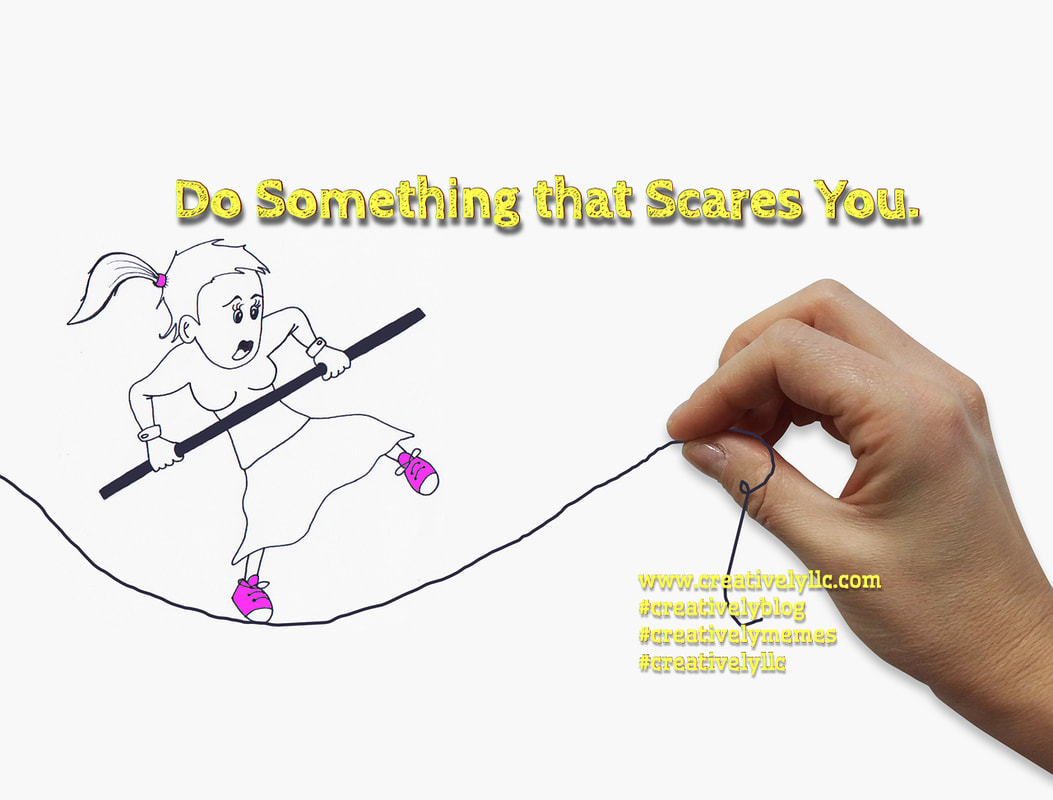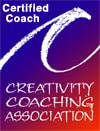|
Do something that scares you, every day.
Years ago, someone whose resiliency and peaceful lifestyle that I admired, gave me this advice. I did, like you might, balk at this advice: do what? Needless to say I spent time thinking about this then, and it is something I have reflected on since. Today it is advice I share with you. What scares you? In a psychological sense, what I am really asking you is, what are you avoiding? We all have defense mechanisms learned throughout our lives that protect us from perceived threats. The problem is, we change and our lives change, so “once a threat, always a threat” does not apply. What have you conditioned yourself to avoid, but are now doing yourself a disservice from outdated or expired fear responses? I will give you an example that frequently surfaces in session: finances. For most of us, the younger we are as adults, the less money we have, the more fearful we are about having enough money to meet all our needs (recall buying something in your 20s, then covering your eyes and singing “la la la” afterwards). However, and almost regardless of how our financial status does or doesn’t change over time, this is a stressor we are more equipped to handle with age. We are more capable of planning, problem solving, have more support, etc. Always, but most especially eventually, we are doing ourselves a disservice by avoiding making financial plans because it is stressful. It may always be stressful- but that does not mean our past ways of dealing with it (avoidance) is functional. Part of what I am intimating is distress tolerance should increase with age. We should be able to persevere and tackle something stressful or distasteful more effectively in our 30s than we did in our 20s. If this is not true for you, than something is preventing you from being able to grow and develop this muscle (but that is not what I want to talk about today). What I want to explore is the use of the cognitive/behavioral variety of therapies to build distress tolerance. The alphabet soup referring to the cognitive/behavioral focused therapies continues to grow: REBT, CBT, DBT and more. Essentially what these and many other approaches have in common, is using logic and cognition to moderate or even change emotional responses, giving us more room to make different decisions. Generally in introductions to these approaches you will be given a formula that looks like this: precipitating event leads to irrational/rational belief leads to emotional reaction leads to behavior. Most of these theories hinge upon impacting the irrational/rational belief to linearly impact the other parts of this cycle (emotions, behaviors). What I’m saying to you is, when something happens our initial response to it is largely conditioned based upon our experiences in life. We will believe what we do about it based on our past experiences and strong emotions are tied to this. Ultimately we make the decisions about resulting behaviors (be they conscious or subconscious) from this personal data. Let’s go back to the money example. We have a new expense we weren’t planning on. Based on a personal history of financial stress, we panic. Based on panic, we avoid. In this scenario the key factor is making the judgement that the expense is a threat. If we could train ourselves to perceive this event differently, we will behave differently about it. Of course it isn’t that simple- when the expense happens we will still panic- part of these responses become fairly hard-wired depending on how frequently they have been used- but we can activate our distress tolerance to stay with that feeling just long enough to consider an alternative explanation, resulting in a different feeling and different choice. I will say that again in a different way: if we face something we are afraid of, just for a moment, we create enough possibility to view that thing differently and have a different outcome. Remember, creative people, that your emotions can be more powerful than a sampling from the general population. This means understanding and breaking these patterns is simultaneously especially challenging and important for you. Are you tired of avoiding stressful situations that maybe you know aren’t really a threat? Do you find yourself more emotionally reactive than you would like? Do you feel controlled more by your emotional responses than you want to be? Maybe it’s time to come sit on my couch and talk about breaking the cycle. (C) 2018 Creatively, LLC Comments are closed.
|
get more from The Creativity CoursesLiking educational topics and knowing what's hot in creativity? Creatively has online courses, with an interactive creative community, coaching sessions and more in the Creativity Courses. Want these blogposts in a newsletter? Subscribe here, and get a free gift. Cindy Cisnerosis a Creativity Coach, Creative Therapist and Professional Artist in Sykesville, Maryland. She is an expert straddling the realms of arts, creativity research, psychology, therapy, and coaching. She provides Online Creativity Counseling in Maryland and Virginia, and Online Creativity Coaching throughout the USA, Canada and the UK tailored for the discerning, imaginative, artistic, and neurodiverse. The information provided in this blog is from my own clinical experiences and training. It is intended to supplement your clinical care. Never make major life changes before consulting with your treatment team. If you are unsure of your safety or wellbeing, do not hesitate to get help immediately.
Archives
July 2024
|
|
Concierge Therapy for Creatives in Maryland
Creativity Coaching Worldwide including the USA, UK and Canada |
Telephone |
|


 RSS Feed
RSS Feed

